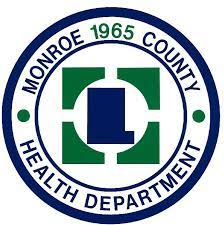
BLOOMINGTON – The Centers for Disease Control and Prevention (CDC) recommended Friday that some people whose immune systems are moderately or severely immunocompromised receive a third dose of the mRNA vaccine they previously received (Pfizer or Moderna), at least 28 days after the second dose.
Per the CDC, new studies show that people with a moderately to severely compromised immune system may not build up the same level of protection from the COVID-19 vaccine as those with a non-compromised immune system. This lower level of protection can increase their risk for having a breakthrough infection and make it more likely for them to have a severe illness and be hospitalized.
The CDC says a third dose of vaccine can be considered for people with the following conditions:
- Receiving active cancer treatment for tumors or cancers of the blood
- Received an organ transplant and are taking medicine to suppress the immune system
- Received a stem cell transplant within the last 2 years or are taking medicine to suppress the immune system
- Moderate or severe primary immunodeficiency (such as DiGeorge syndrome, Wiskott-Aldrich syndrome)
- Advanced or untreated HIV infection
- Active treatment with high-dose corticosteroids or other drugs that may suppress your immune response

Penny Caudill, the administrator at the Monroe County Health Department, says those with questions can contact their doctor to verify if another dose is appropriate for them and to make an appointment for the vaccine.
Appointments can also be made by visiting www.ourshot.in.gov.
A doctor’s order is not required to get the third dose, but recipients must attest that they meet the identified criteria.
The new guidance does not apply to those with a weakened immune system who received the Johnson and Johnson vaccine, though it is being studied. The CDC also does not currently recommend a booster dose for the general public as the vaccines are considered broadly protective against severe disease and hospitalization.



